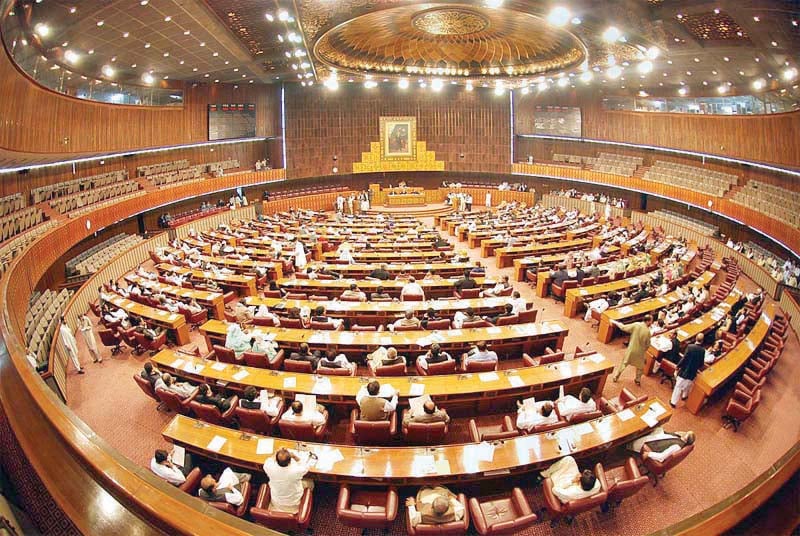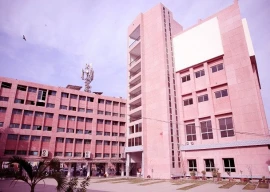
The government on Wednesday introduced a bill in the National Assembly to further amend the country’s accountability law, aimed at empowering the chief of the country’s top anti-graft body.
The move came as an interim official report in February revealed that in an International Monetary Fund (IMF)-conditioned review of Pakistan’s anti-corruption framework, the government had agreed to introduce more amendments to the National Accountability Ordinance and the Federal Investigation Act.
The report was submitted to the IMF as part of the global lender’s condition to conduct a comprehensive review of the institutional framework of Pakistan’s anti-graft environment by a taskforce.
The taskforce has recommended amendments to the NAO, 1999 and the FIA Act, 1974, according to the interim report. The IMF slapped the condition last year after the government made changes in the NAO that equally benefitted the politicians as well as the bureaucrats.
Law and Justice Minister Azam Nazeer Tarar tabled the National Accountability (Amendment) Bill, 2023, which seeks changes in 17 sections of the original law.
The amendments would be applicable to the National Accountability Ordinance (NAO), 1999.
Under the proposed bill, the government wants to increase the powers of the National Accountability Bureau (NAB) chairperson.
All pending inquiries intended to be transferred under sub-section 3 shall be considered by the NAB chief.
Under the proposed amendments, the NAB chairperson will have the authority to close the inquiries started under any other law.
The anti-graft body chief shall be authorised to refer all such inquiries to the related agency, institution or authority.
If NAB is not satisfied with the inquiry, its chief will be authorised to send the case to the court concerned for the approval for the release of the suspect.
On receiving the inquiry from the NAB chief, the concerned agency, authority or department will be authorised to further investigate the matter under clauses A and B.
Under the proposed amendments, if the court is not satisfied, any case can be referred back to the relevant institutions, agencies or authorities with the help of NAB.
On the return of a case from the court, NAB will be able to prosecute it under its own rules through the concerned department or authority.
Cases decided before the National Accountability Amendment Acts 2022 and 2023 will remain in force.
These decisions will remain in effect until they are withdrawn.
Any court forum or agency shall be competent under its respective laws to record or re-record old or new witnesses for further proceedings in a case referred to it.
Under Section 5 of the NAB Act, further proceedings in all pending inquiries, investigations and trials can only be conducted under the rules of the concerned institutions.
In case of absence of the NAB chief or inability to perform their duties because of any reason, their deputy will be authorised to take over their responsibilities.
In case the deputy chairperson is unavailable, the federal government will be authorised to appoint the acting NAB chief from among the senior officers of the anti-graft body.
In June last year, the NAB (Second Amendment) Bill 2021 was passed by a joint sitting of parliament.
It stripped NAB of its powers to act on federal, provincial or local tax matters. Regulatory bodies were also removed from the anti-graft body’s domain.
The bill was returned unsigned by President Arif Alvi before it became the law.
The PTI approached the Supreme Court against the bill, with its chief Imran Khan arguing that the amendments would pave the way for public office-holders to remain unpunished for white-collar crimes.
Just a month later in July 2022, the federal cabinet passed the National Accountability (Third Amendment) Bill, 2022, with new legislation aimed at restricting NAB's role in graft cases involving more than Rs500 million and taking away the president's power to appoint accountability court judges.




















COMMENTS
Comments are moderated and generally will be posted if they are on-topic and not abusive.
For more information, please see our Comments FAQ